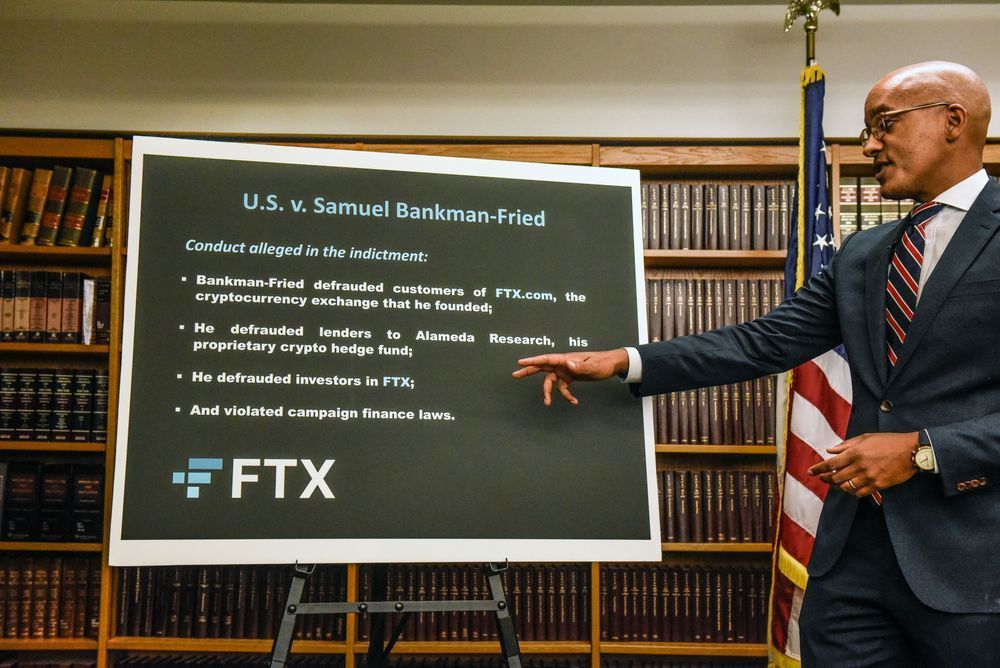Where Do We Go From Here
 In 2021, the cryptocurrency market saw significant growth, leading to the rise of multiple blockchain-based businesses, including an exchange called FTX and a crypto hedge fund called Alameda Research. Both businesses were founded by billionaire Sam Bankman-Fried (SBF). SBF was seen as the white knight of crypto, having bailed out multiple other crypto-related businesses in the summer of 2022, after the crypto crash that occurred earlier in the spring.
In 2021, the cryptocurrency market saw significant growth, leading to the rise of multiple blockchain-based businesses, including an exchange called FTX and a crypto hedge fund called Alameda Research. Both businesses were founded by billionaire Sam Bankman-Fried (SBF). SBF was seen as the white knight of crypto, having bailed out multiple other crypto-related businesses in the summer of 2022, after the crypto crash that occurred earlier in the spring.
It was later discovered, however, that since FTX inception, user funds were not properly separated from assets under Alameda management. SBF had misused customer funds by investing them with his hedge fund, Alameda, on margin. As a result, most customer funds were lost during the market crash, leading to widespread financial loss among those who had invested in crypto through FTX.
Even those who didn't invest through FTX were likely affected by these events as Solana (SBF's crypto protocol of choice, that he pumped money in) plummeted 60% shortly after FTX insolvency was exposed. At its peak, Solana briefly rose to be the 3rd most popular cryptocurrency, second only to Ethereum and Bitcoin itself.
On December 12, 2022, SBF was arrested in the Bahamas on criminal charges brought against him by the US government and is currently awaiting extradition. The events surrounding SBF's misappropriation of customer funds and the resulting financial loss for many individuals have led to significant backlash and raised concerns about the integrity of the cryptocurrency market.
One potential solution to these issues is the implementation of "proof of reserves" in the cryptocurrency market. This concept would require all crypto exchanges to periodically demonstrate where and how customer funds are being held, ensuring that any funds being traded on margin are separate from customer funds. By providing transparency and accountability in the handling of customer funds, "proof of reserves" could help to restore trust in the cryptocurrency market and prevent similar misappropriations from occurring in the future.
In addition to the implementation of "proof of reserves," increased regulation in the cryptocurrency market could also play a role in ensuring accountability and transparency. Through the implementation of clear and consistent rules and guidelines, regulatory bodies could help to ensure that all participants in the market are operating in a fair and transparent manner. This, in turn, could help to rebuild trust in the industry and promote long-term stability. While it is important to strike a balance between regulation and the decentralization that is at the core of many cryptocurrencies, appropriate oversight can help to protect individuals and organizations from unethical or fraudulent practices.
Overall, the events described represent a significant setback for the cryptocurrency market and have raised concerns about the trustworthiness of those involved in the industry. The misappropriation of customer funds and the resulting financial loss for many individuals is a clear violation of trust and has had far-reaching consequences. It is important for those involved in the cryptocurrency market to prioritize transparency and integrity in order to rebuild trust and ensure the long-term success of the industry.